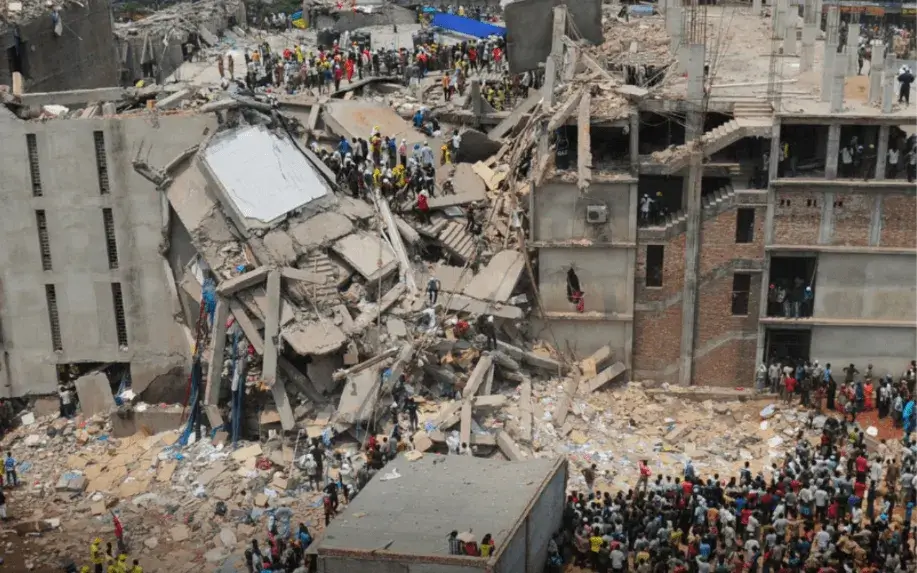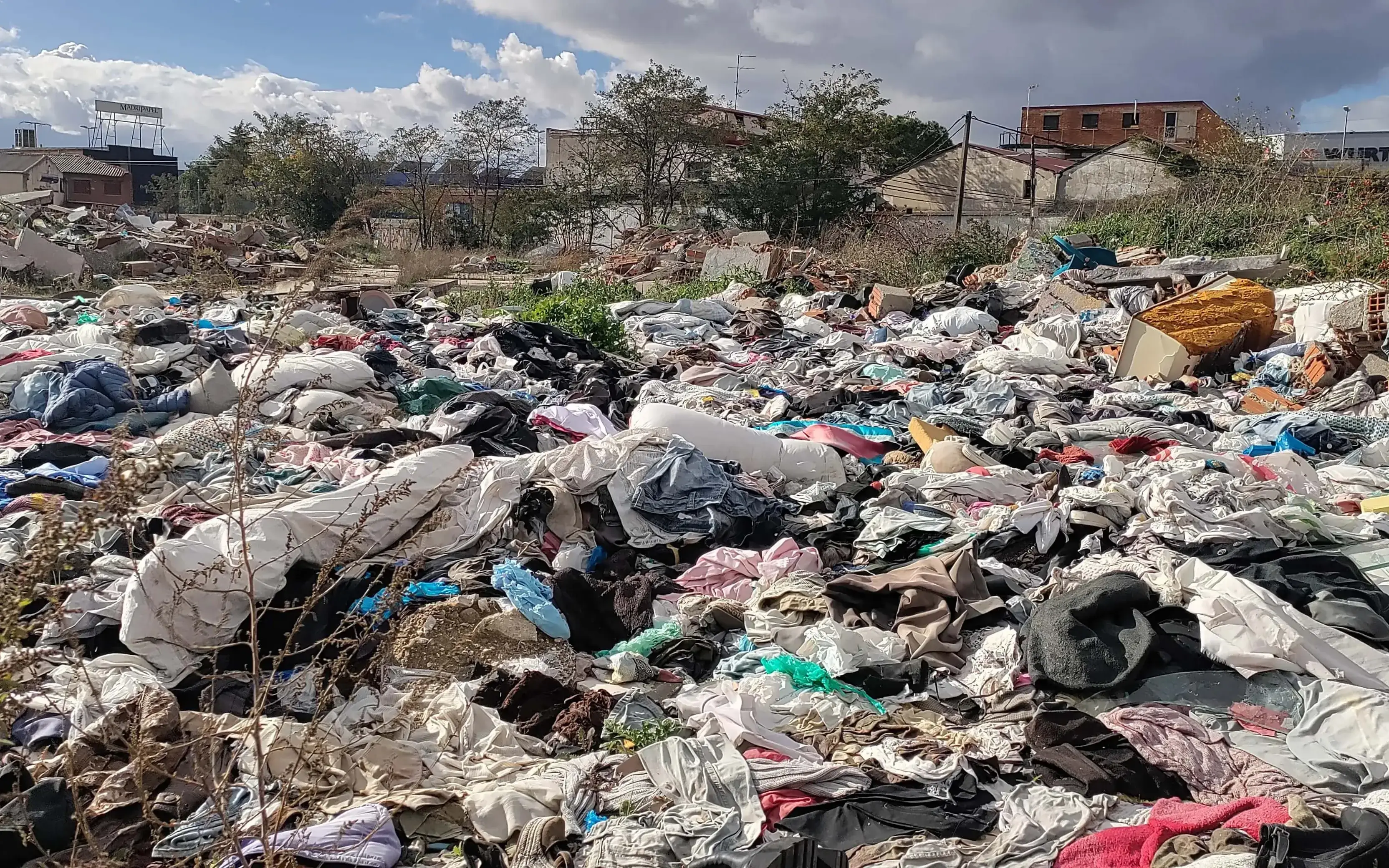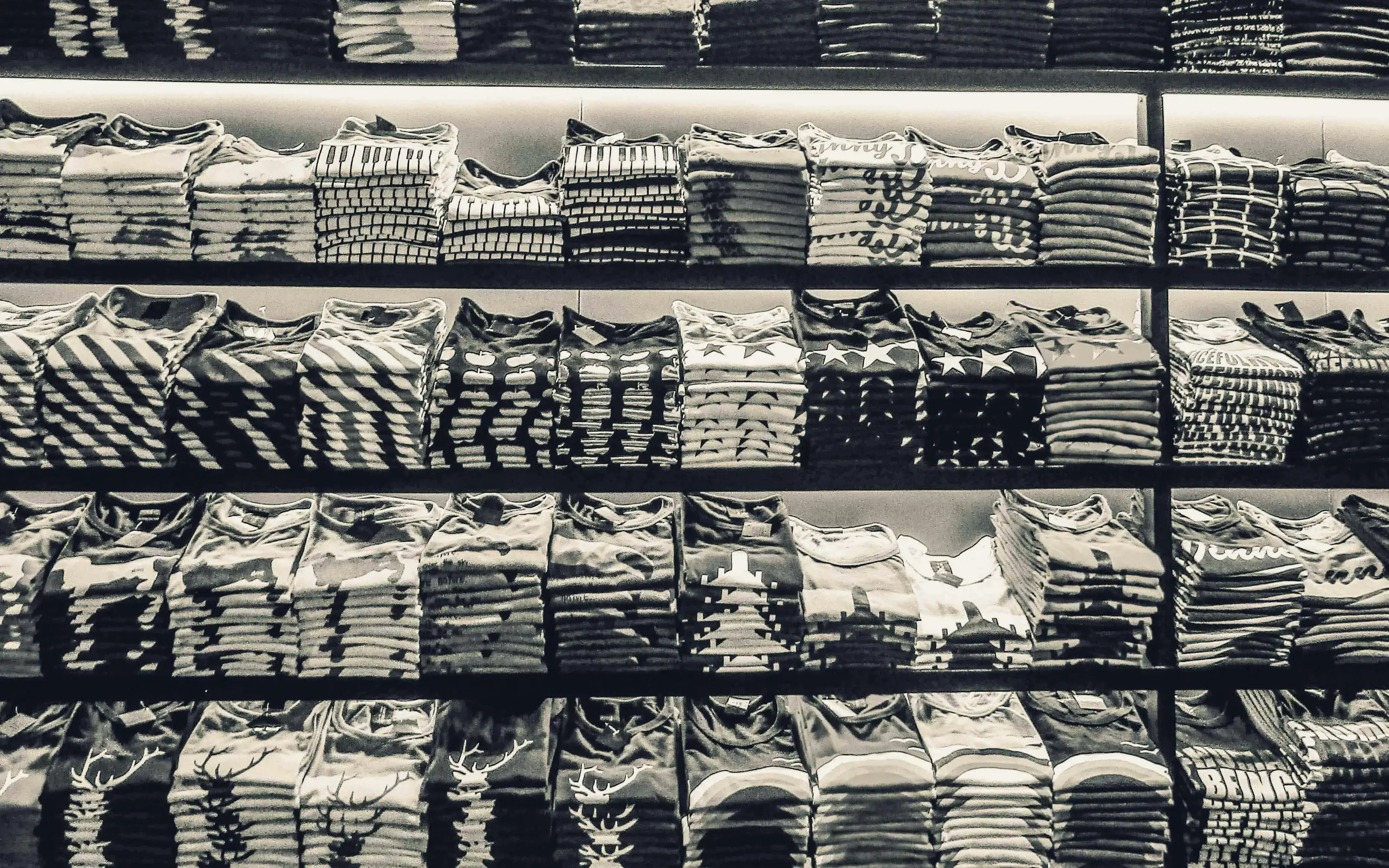
Twelve years after the collapse of the Rana Plaza building in Bangladesh, which killed over 1,100 garment workers, major European sportswear retailer Decathlon is being accused of continuing to profit from exploitative labor conditions in the country.
April 24, 2025 marks the twelfth anniversary of the Rana Plaza collapse in Bangladesh, one of the deadliest disasters in the history of the garment industry. More than 1,100 workers lost their lives producing clothes for global fashion brands under harsh and unsafe conditions. Despite warnings about the structural dangers, employees were forced to return to the building, driven by fear of losing their jobs and the need to survive on meager wages. The tragedy was not a coincidence — it was the foreseeable result of a system that sacrifices human safety for corporate profit.
Setem Catalunya, together with the international Clean Clothes Campaign, warns that the situation in Bangladesh’s textile sector remains dire, twelve years after that preventable catastrophe.
This year, their criticism targets Decathlon, one of Europe’s leading sportswear retailers, which they accuse of breaching its own ethical standards. According to a recent investigation by Disclose, Decathlon relies on suppliers in Bangladesh where workers earn only €87 a month. They endure 10-hour shifts, six days a week, with just 13 days of paid leave per year.
While these wages meet legal minimums, they fall well below the amount considered necessary for a dignified life. A living wage in Bangladesh is estimated at roughly €165 per month (21,000 takas). Internal documents suggest that Edison Footwear — one of Decathlon’s main suppliers — hires staff based on productivity calculations like “cost per minute,” pushing employees to maintain unsustainable work paces.
“Most women accept these conditions because they see no other way out of rural poverty,” says Kamrul Hasan, General Secretary of the Akota Garments Workers Federation.
In addition to low wages, concerns persist around workplace safety. Despite mounting evidence of serious health and safety risks in its supply chain, Decathlon has yet to sign the International Accord on Health and Safety in the Textile and Garment Industry. This legally binding agreement, established after the Rana Plaza disaster, has been endorsed by more than 260 global brands and has contributed to safer conditions in factories through independent inspections and oversight.
Activists from the campaign plan to mobilize this Thursday to pressure Decathlon into joining the Accord. They argue that without legally enforceable commitments, brands will continue to evade responsibility for the treatment of workers in their supply chains.






Add new comment